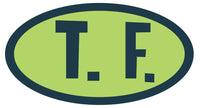
Hey–
In George Milburn’s, The Hobo’s Hornbook, a 1930 collection of hobo balladry and poems and songs, he draws a distinction between hobos and tramps; a distinction pointed out to him by hobos themselves. Hobos considered themselves migratory workers, where tramps depended on other sources of revenue; the tramps given more to the criminal class than hobos. Mr. Milburn’s collection is, by his own admission, not definitive, but it is indispensable in any discussion of hobo music or poems. They were musical and a great many of their songs harshly satirical. A great many of them were written by Joe Hill, the IWW organizer and hobo martyr who was executed for a murder he did not commit. Hill is one of the heroes of labor union history and was framed and executed by firing squad in 1915 in Utah.
Part of the hatred of hobos was intertwined with the rise of the nascent labor movement. Cops, Pinkertons, and railroad “Bulls” were well-aware a great many union organizers traveled with the hobos riding the rails and boxcars, in order to organize coal-miners, cattlemen, fruit-pickers, and all other manner of working people. Often the Bulls laid in wait for the hobos and issued severe beatings; killings were commonplace and your average Bull was much like the mental defectives who cannot become cops or jail guards. It was a perilous life and your seasoned hobos knew to jump off the trains before it reached the rail yards.
Many of the organizers who rode the rails were branded as “Reds” and in fact, many were socialists of the Eugene Debs mold and believed only the unions could protect them and provide work. A great many hobos became, or were, former railroad men and unionization did not come easily to the railroads. One of the bloodiest strikes was right here in Chicago; the Pullman strike; which inflamed racial hatred and killed 13 strikers, but in that case the union held. Until the Feds came in and broke the strike with troops claiming that the strike interfered with the U.S. mail, a great many hobos passed stories of the Pullman strike back and forth generations later and to a man, were pretty much union men.
This one is for the men who took the beatings– it’s called, ‘The Last Ride.”
This is the hobo symbol for, “Be ready to defend yourself.”
Tony
